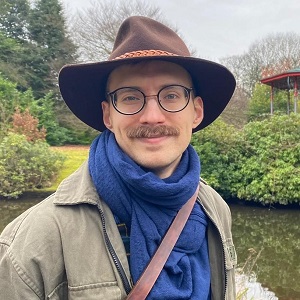Welcoming Dr Jeremiah J. Nieves

I joined the Department of Geography and Planning Geographic Data Science Lab in February 2021 as a Lecturer in Data and Human Geography. Prior to this, I earned my BS in Applied Geography conc. GIS at the University of Louisville, USA. I then completed most of a master’s in public health prior to transferring in 2014 to focus more on spatial analytical approaches to populations, health, and environment. In 2016 I obtained a Masters in Geography from the University of Louisville during which I concentrated in remote sensing, machine learning, and population modelling methods. In 2020, I completed my PhD in Geography under funding from the Economic and Social Research Council South Coast Doctoral Training Programme at the University of Southampton, UK.
From 2014 through 2020, I was a researcher with the WorldPop research group (www.worldpop.org) where I had a strong role in matters relating to urban data applications, population modelling methods, geospatial data infrastructure, programmatic workflows, and data production. Additionally, during this time, I worked with various international governments; NGO groups such as the WorldBank, IDRC, and UNFPA; and community, private, and public stakeholders on applied project and grant proposals. At the end of 2020, I began a brief post-doc with the University of Colorado Boulder's Population Center before transplanting myself from Kentucky to Liverpool.
My methods revolve around quantitative programmatic approaches using high volumes of data, remote sensing and derived data, machine learning, and frequentist and Bayesian approaches – all with an emphasis on knowledge generation and the people behind the numbers. Broadly, my research focuses around spatio temporal modelling of human environment interfaces. Previous works have focused on disaggregative population modelling 1 2, global settlement growth interpolation 3, global settlement growth projections 4, and how environmental covariates contribute to population models 5 6 and modelled settlement data can inform population
modelling 7.
My current research focuses on learning about past population-demographic-environment dynamics in response to disasters, spatio temporal inequities, population modelling methods, and integration of novel datasets into population and population modelling applications. All of this is done with a focus on open and replicable research. Other research topics of interest are: urban systems, settlement and population dynamics, settlement connectivity & transportation, remote sensing, environmental health and social inequities, network analysis, spatial demography, and public health applications.
Outside of research, I can often be found hiking, rock climbing, crafting and reading copious amounts of sci fi.